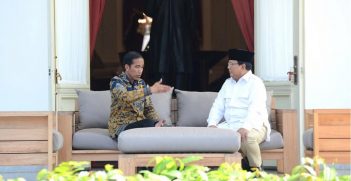Australia Can Lead on Indigenous-led Climate Change Policies with Our ASEAN partners

An Indigenous-led climate policy, partnerered with ASEAN members, can help to fight climate change. With existing mitigation approaches slowed or abandoned, new tools are needed.
The landmark case at the United Nations Human Rights Committee (UNHRC) brought forward by Torres Strait Islanders Group of Eight (Torres Strait 8) and their families from the islands of Masig, Boigu, Warraber and Poruma, pointed to rising sea levels as severely impacting their culture and livelihoods through increased heavy rains and storms. Increasing extreme weather events have destroyed family gravesites and natural coastal management systems, as well as endangering food sources. The Torres Strait 8 argued that the Australian Government had violated their human rights through failing to act on adequately addressing climate change in the region. The UNHRC concluded in September 2022 that the Australian Government had breached the rights of Torres Strait Islanders to “enjoy their culture, and be free from arbitrary interferences with their private life, family and home” under Article 27 and Article 17 of the International Covenant on Civil and Political Rights (ICCPR).
The UNHRC stated that based on their findings the claimants must be compensated. This ruling demonstrates a shift in international norms by seeking to hold governments to account for refusing to act on climate change. Moreover, it highlights the importance of including Indigenous voices and practices at the centre of policies and activities when responding to climate change. Following on from the ruling, the Federal Labor Government is working to incorporate Indigenous voices into its foreign policy objectives through the First Nations Foreign Policy, led by Australia’s first Ambassador for First Nations People, Justin Mohamed.
The commitment to Indigenous foreign policy is extremely important for strengthening action on climate change both at home and in the region. While Australia as a whole is being impacted by climate change, the Torres Strait Islands are bearing the brunt of its effects. Similarly, communities in Indonesia are grappling with rising sea levels. The country’s capital of Jakarta is the world’s most rapidly sinking major city, and where experts estimate that by will be completely underwater by 2100. Around 92 of the country’s outermost islands are also at risk of complete inundation. Not only does climate change in this instance seek to challenge Indonesia’s territorial integrity, but it also risks the loss of culture, livelihoods, and access to marine resources.
With the increasing risks of climate change to such cultural habitats it is essential that coastal and Indigenous communities’ voices and strategies be included as key components of national policies. Policies and activities that currently exist include localised maintenance and protection of coastal defence systems like mangroves, sea-grass meadows such as in Western Australia, and seawall building projects, such as those taking place in Poruma. In Indonesia, the planting of maritime pine on the Selayan Islands in the South Sulawesi remains a key approach of local communities fighting climate change. Likewise, in Australia there are also Caring for Country programs that involve ranger groups who conduct and assist with cultural burning practices that include fuel reduction and fire management, protection of natural and cultural assets, as well as flora regeneration and fauna habitat protection. Ranger groups also include the maintenance and protection of Indigenous Protected Areas, and co-management arrangements.
As of November 2023, the Minister for Indigenous Australians, Linda Burney, announced a AUD$359 million boost to the number of Indigenous rangers from 1,900 to 3,800 by 2030. Rangers work with Traditional Owners to plan and action land and water management activities. Rangers are also invovled in the protection and maintenance of culturally significant sites, bushfire mitigation through cultural burning, biodiversity conservation through invasive species management, and habitat protection in both freshwater and Sea Country management initiatives. These activities also form part of the Indigenous Protected Area framework. The expansion of ranger groups demonstrates the Government’s understanding of the importance of these groups in mitigating the effects of climate change on the land and in the ocean through traditional and contemporary conservation activities. Yet, these should be expanded at home and into the wider region.
At the 2024 ASEAN-Australia Special Summit in Melbourne, concerns over rising sea levels and their implications were a key feature of discussions. How best to incorporate Indigenous voices, land and ocean management practices, and knowledge into the policies of Australia and Southeast Asian states were widely discussed.
The Torres Strait, as well as Indonesia’s islands and its people are uniquely placed to contribute to and implement a collaborative policy that includes localised and tailored mitigation strategies to the challenges of rising sea levels, and their impact on traditional and sustainable fishing methods in the region. Sustainable and traditional fishing methods are core elements in safeguarding culture, livelihoods, and the marine environment. At the Special Summit, ASEAN member states and Australia reaffirmed their position on promoting sustainable fisheries to combat key issues such as Illegal, Unreported and Unregulated fishing (IUU). By continuing to work alongside coastal and Indigenous communities to respond to these issues, Australia can contribute to targeted and impactful policies.
This cooperation could include the expansion of capacity-building programs, which should include Indigenous leadership to ensure its activities are not tokenistic or culturally insensitive. Indigenous and non-Indigenous communities can work together to create meaningful cooperation through knowledge transfer and education. Likewise, committees can be part of the process of ensuring that cooperation is inclusive of local communities. In these committees, members can use these forums as a way to regularly report on the strengths and weaknesses of mitigation strategies to Australian and Indonesian governments and at ASEAN meetings.
Working together, both Australia and Indonesia can create strong and tailored strategies to help mitigate rising sea levels, and collaborate with minority groups and authorities like the Torres Strait Regional Authority to strengthen localised oceanic management. By combining local strategies, like the seawall building project in Poruma and the planting of maritime pine in the Selayan Islands, to broader national ones, these nations can provide an avenue for localised knowledge to be utilised and implemented on a wider scale in the region. Moreover, by sharing knowledge between Traditional Owners, scientists, and governments, such an approach will allow for a more holistic and thorough climate change response, one that could be expanded into Southeast Asia in the coming years.
At the 2024 ASEAN-Australia Special Summit, Prime Minister Anthony Albanese stated that “Southeast Asia is where Australia’s future lies.” During the Summit, the prime minister reaffirmed Australia’s commitment to a clean energy transition in the region, as well as strengthening relations with ASEAN member states. The emphasis on a clean energy transition forms an important part in regional cooperation on mitigating the effects of climate change. The same importance must be given to strengthening First Nations cooperation with ASEAN countries.
A First Nations-led policy mechanism could contribute to enhancing people-to-people relations between Australia and ASEAN states. It could be based upon the historic trade relations between Indigenous people from Arnhem Land, Kimberly coastlines, and the Makassar peoples in the South Sulawesi. These people-to-people relations saw the trading of trepang (sea cucumber), as well as cultural practices and language. These historic relations could inform initiatives to address IUU fishing and the importance of traditional and sustainable finishing methods, as well as developing strategies to safeguard livelihoods, cultural practices, territory, maritime entitlements, and the environment across the region.
Consistent, open dialogue between all stakeholders is essential for this comprehensive and inclusive approach to work. Likewise, adequate funding from both the Indonesian and Australian governments is paramount in ensuring that the various mechanisms and activities can be achieved in a timely and concise manner. Without doing so, we will continue to see the loss of land, culture, and marine resources.
Genevieve Lancaster is a recent graduate from La Trobe University where she gained her Master in International Relations (International Development Practice). Genevieve has a keen interest in Australia’s domestic and foreign policy and political landscape more broadly.
This article is published under a Creative Commons License and may be republished with attribution.





